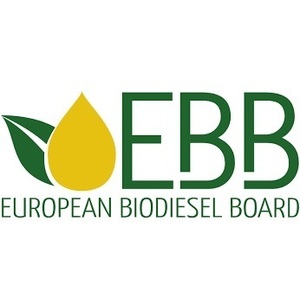European groups comment on key RED vote in Parliament

July 15, 2022
BY European Biodiesel Board
The European Parliament has taken a positive step on EU renewable energy policy as ITRE Committee members voted decisively in favor of increasing the ambition for GHG emissions reduction in transport while leaving Member States free to use crop-based biofuels in their transport energy mix.
The ITRE position – adopted by a vote of 54 in favor, 14 against, 6 abstentions – largely maintains the framework for crop-based biofuels as suggested by the European Commission, with a crop cap set at each Member State’s 2020 final consumption of energy in transport, allowing +1 percent flexibility with a maximum of 7 percent.
ITRE members signaled that sustainably produced crop-based biofuels do play an important role in transport decarbonization – today and tomorrow. This is certainly an improvement over the misguided approach toward agriculture taken by the ENVI committee, which would severely reduce the cap on crop-based biofuels and create a gap in the transport energy mix that would have to be filled by imported fossil fuel.
Now it will be up to the full European Parliament to decide in plenary in September on a final position. With so much at stake on the issues of increasing both EU energy and feed & food autonomy as highlighted in the EU Council declaration, it is clear the Parliament needs to recognize the potential of sustainable crop-based biofuels as an important component of EU renewable energy policy and a key provider of EU protein-rich co-products for feed use until 2030 and beyond.
In light of the current geopolitical context, the EU should acknowledge and fully maximize the potential of certified sustainable crop-based biofuels in reaching the new EU policy priorities and targets for food & feed and energy security, while delivering on its climate ambitions.
Advertisement
Advertisement
Our sectors are at the crossroads of moving towards climate neutral food and feed production, fossil-fuel substitution and European energy independence, GHG emissions savings and the domestic bioeconomy. At the same time, decision-makers should recognise the synergies –- between food, feed, and energy value chains in the EU.
•COCERAL – represents trade in cereals, oilseeds, pulses, olive oil, oils and fats, animal feed and agrosupply
•Copa and Cogeca – represents European farmers and agri-cooperatives
•European Biodiesel Board (EBB) – represents the European biodiesel industry
•European renewable ethanol association (ePURE) – represents the European renewable ethanol producers
Advertisement
Advertisement
•FARM Europe - a multicultural think tank that aims to stimulate thinking on rural economies
•Fediol – represents the interests of the European vegetable oil and protein meal industry
•FEFAC - represents the interests of the European compound feed and premix industry
Related Stories
CountryMark on July 22 celebrated the completion of more than $100 million in upgrades at its refinery in Indiana, including those related to soybean oil storage. The facility produces renewable diesel via coprocessing technology.
ATOBA Energy and Air Moana are partnering to implement scalable solutions for the supply of SAF. The collaboration aims to ensure long-term SAF availability while supporting local initiatives to develop sustainable fuel production in Tahiti.
While final IRS guidance is still pending, the foundation of the 45Z program is well defined. Clean fuel producers should no longer be waiting; they can now move forward with critical planning and preparation, according to EcoEngineers.
Neste Corp. on July 24 released second quarter results, reporting record quarterly renewable product sales volumes despite weaker margins. SAF sales were up nearly 80% when compared to the first quarter of 2025.
Valero Energy Corp. on July 24 released second quarter results, reporting a profitable three-month period for its ethanol segment. The renewable diesel segment posted a loss, but the company’s new sustainable aviation fuel (SAF) unit operated well.
Upcoming Events










